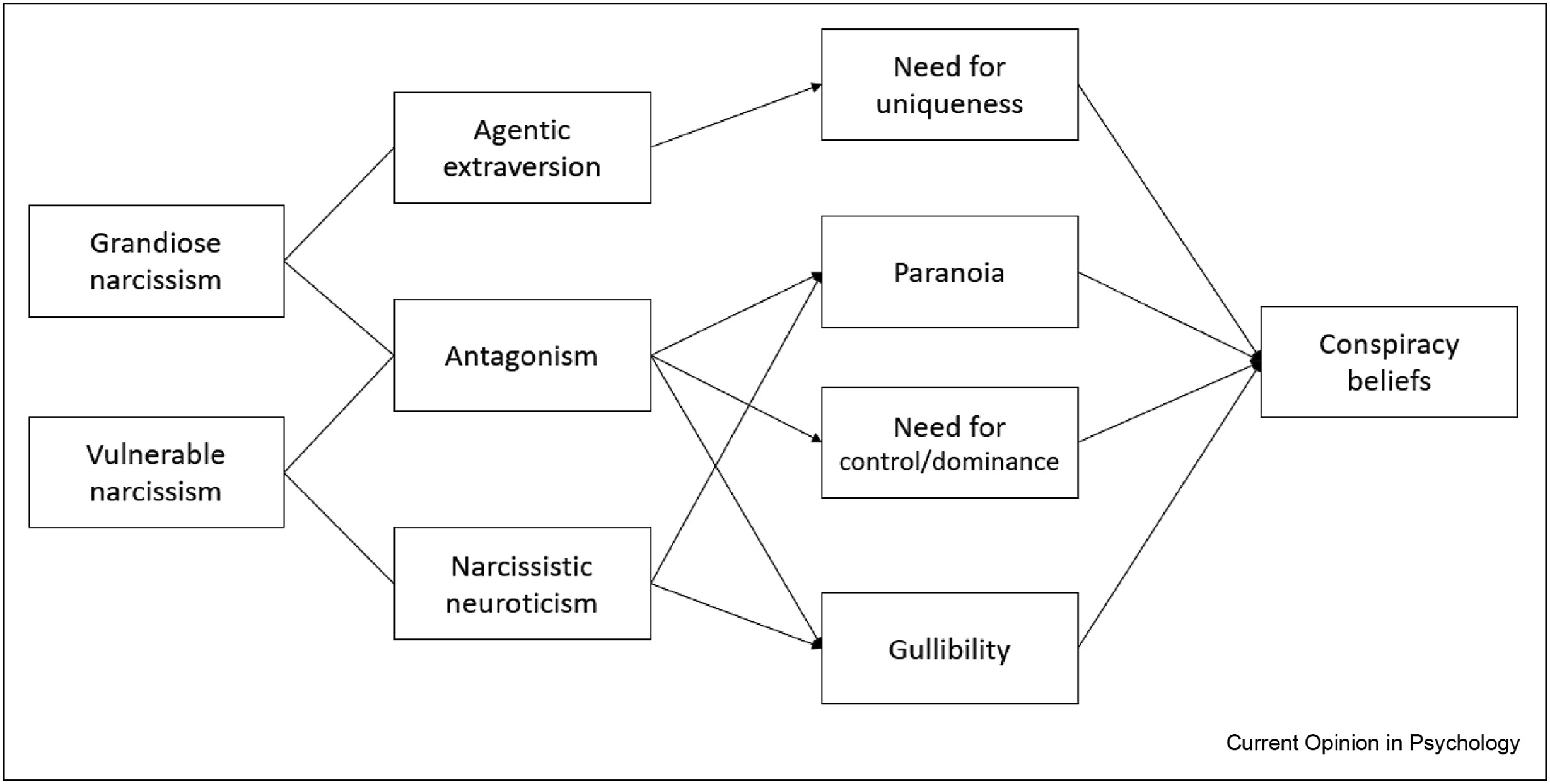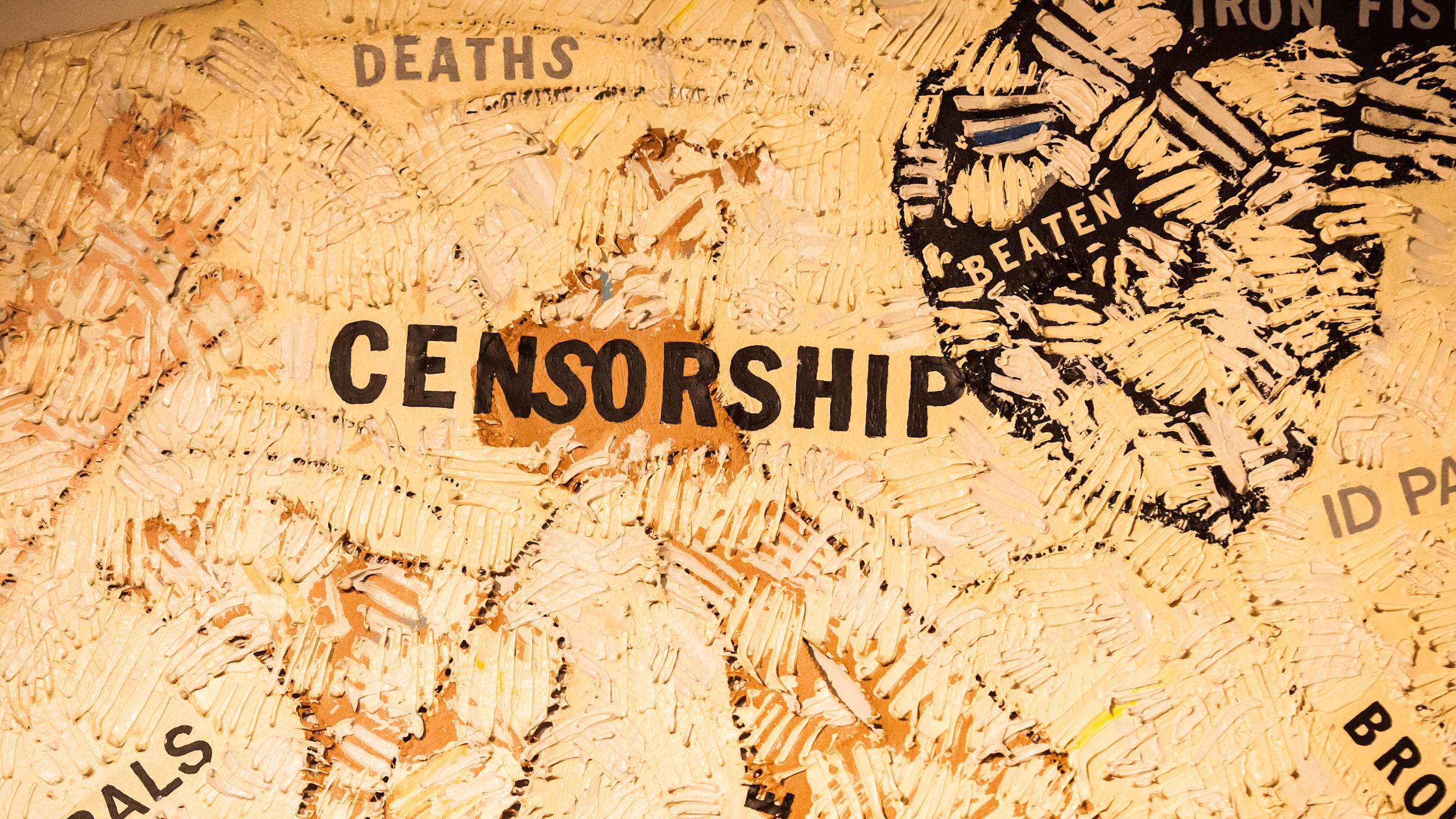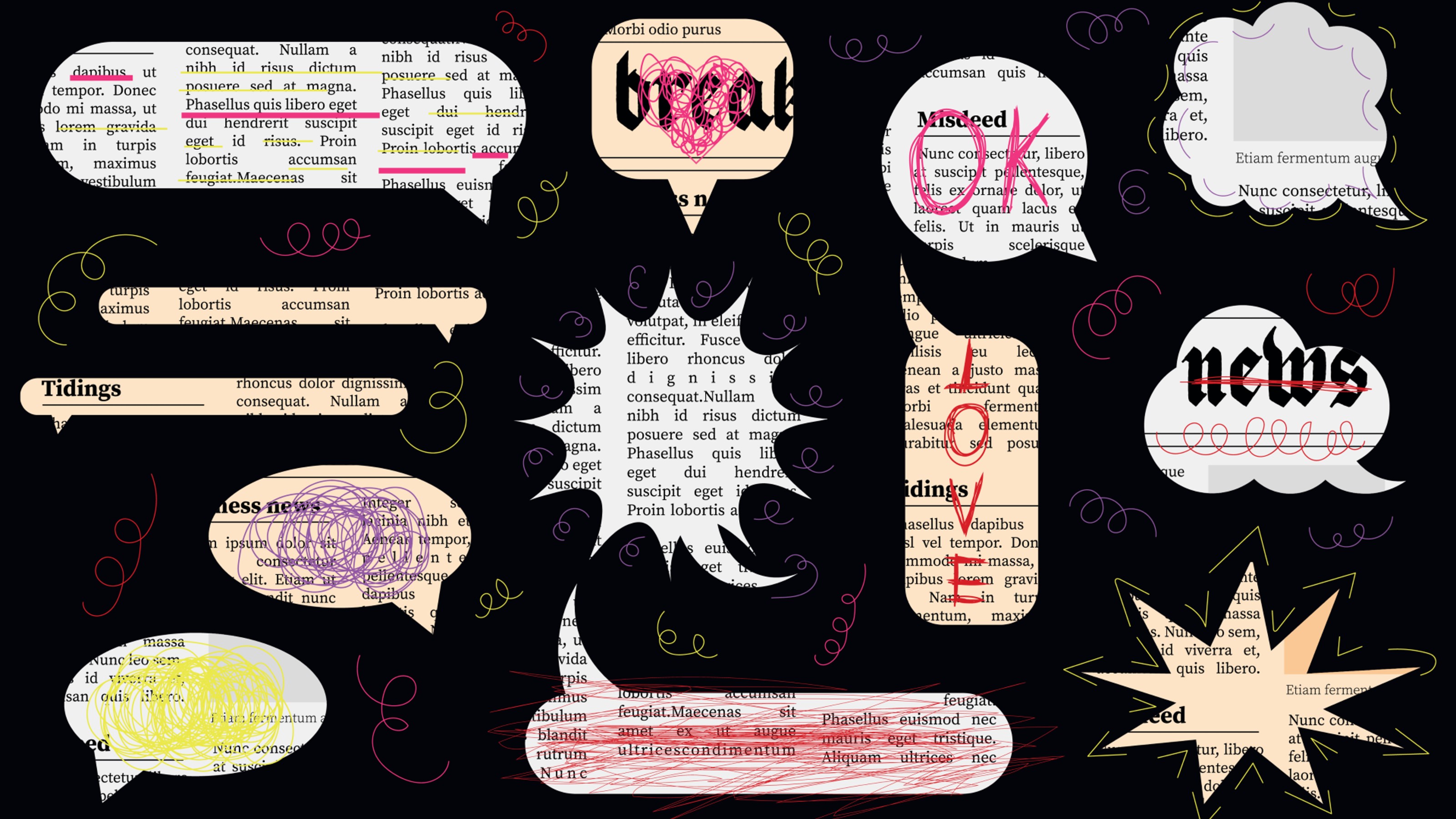Why narcissists are likelier to promote conspiracy theories

- Narcissists often can be identified from an inflated sense of self, a dismissive attitude toward others, and hyper-sensitivity to criticism.
- These traits lead to other behavioral and thought patterns — specifically, a need to be seen as unique, paranoia, a need to control or dominate others, and gullibility.
- All of those, in turn, are linked to conspiratorial thinking.
Narcissists desire attention. And conspiracy theories get a lot of clicks on the internet. So is there a link between narcissism and the promotion of conspiracy theories? A review article published in Current Opinion in Psychology examined this question, and the researchers found that narcissistic traits naturally predispose a person to conspiratorial thinking.
How narcissism manifests
Along with Machiavellianism and psychopathy, narcissism is part of the dark triad of personality traits. Whereas Machiavellians are subtle in their transgressions and psychopaths display antisocial behavior openly, narcissists never think they are in the wrong.
Narcissists often can be identified from three distinct features: (1) They often have an inflated view of themselves and their achievements, a phenomenon known as agentic extraversion; (2) They are rivalrous and see others, even their romantic partners, as inferior to them, a pattern of behaviors collectively known as narcissistic antagonism; and (3) Because of negative emotions that arise from extreme self-consciousness, or narcissistic neuroticism, they react aggressively to even a hint of critical feedback. The first trait is unique to grandiose narcissists (the shameless, entitled type), while the third is unique to vulnerable narcissists (the defensive and withdrawn type — yes, introverted narcissists exist). Both kinds of narcissists share the second trait.

As shown in the figure above, both grandiose narcissism and vulnerable narcissism lead to further behavioral and thought patterns — specifically, a need to be seen as unique, paranoia, a need to control or dominate others, and gullibility.
How narcissism leads to conspiracy theories
A need to be unique. Due to their need to stand out, narcissists often look to distinguish themselves from others. Conspiracy theories fulfill this need by providing access to “knowledge” that very few people possess. For example, those who believe the moon landing was faked think that they are among the select few who can clearly see that the footage was doctored.
Paranoia. Narcissists believe that others (who obviously aren’t nearly as accomplished) are working against them. This paranoia feeds belief in conspiracy theories, and it helps explain why so many of them involve secret organizations that are destroying the world.
A need to control or dominate others. Since narcissists believe they are incapable of doing anything wrong, someone else must be at fault when something inevitably goes awry. Indeed, narcissists often identify scapegoats for their mistakes, a quality that is also true of Machiavellians and psychopaths.
Gullibility. At first glance, gullibility might not seem related to narcissism, but it is: Because narcissists are not self-reflective, they tend to fall for complete nonsense. The researchers noted that narcissism was linked to belief in COVID conspiracy theories, perhaps because narcissists aren’t skeptical of what they read online.
The impact of narcissism on society
Many politicians (and other highly influential people) suffer from an aggravated sense of self. The link between narcissism and conspiracy theories suggests that many people really do believe some of the outlandish claims they make. Social media then amplifies these beliefs and also increases narcissism among individuals.
The risk that narcissists pose to society cannot be understated. Narcissism is at the root of toxic ideologies like White nationalism. COVID conspiracies resulted in thousands if not millions of unnecessary deaths among those who refused to get vaccinated.
Thus, understanding the appeal of conspiracy theories — in addition to the personalities who are susceptible to them — is critical to addressing some of society’s biggest problems. One possible solution might be to design messages that appeal to narcissists, such as suggesting that COVID vaccinations are in the national interest.





